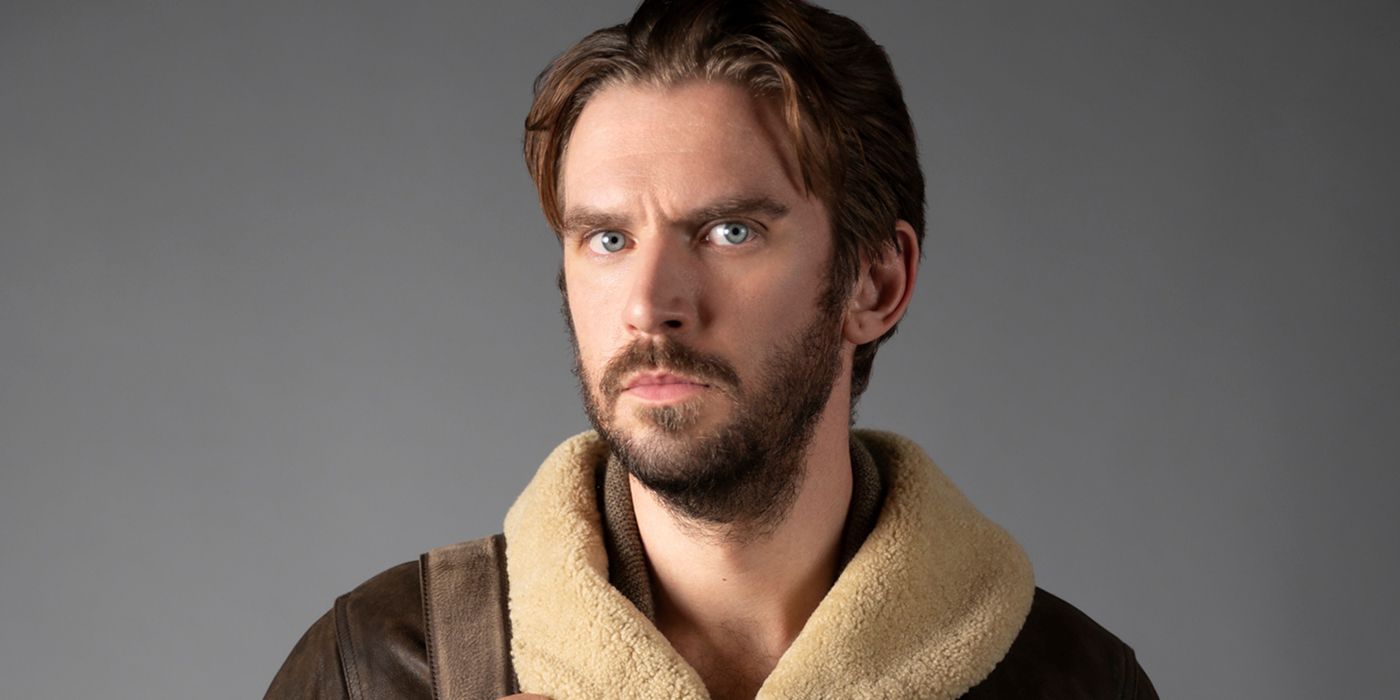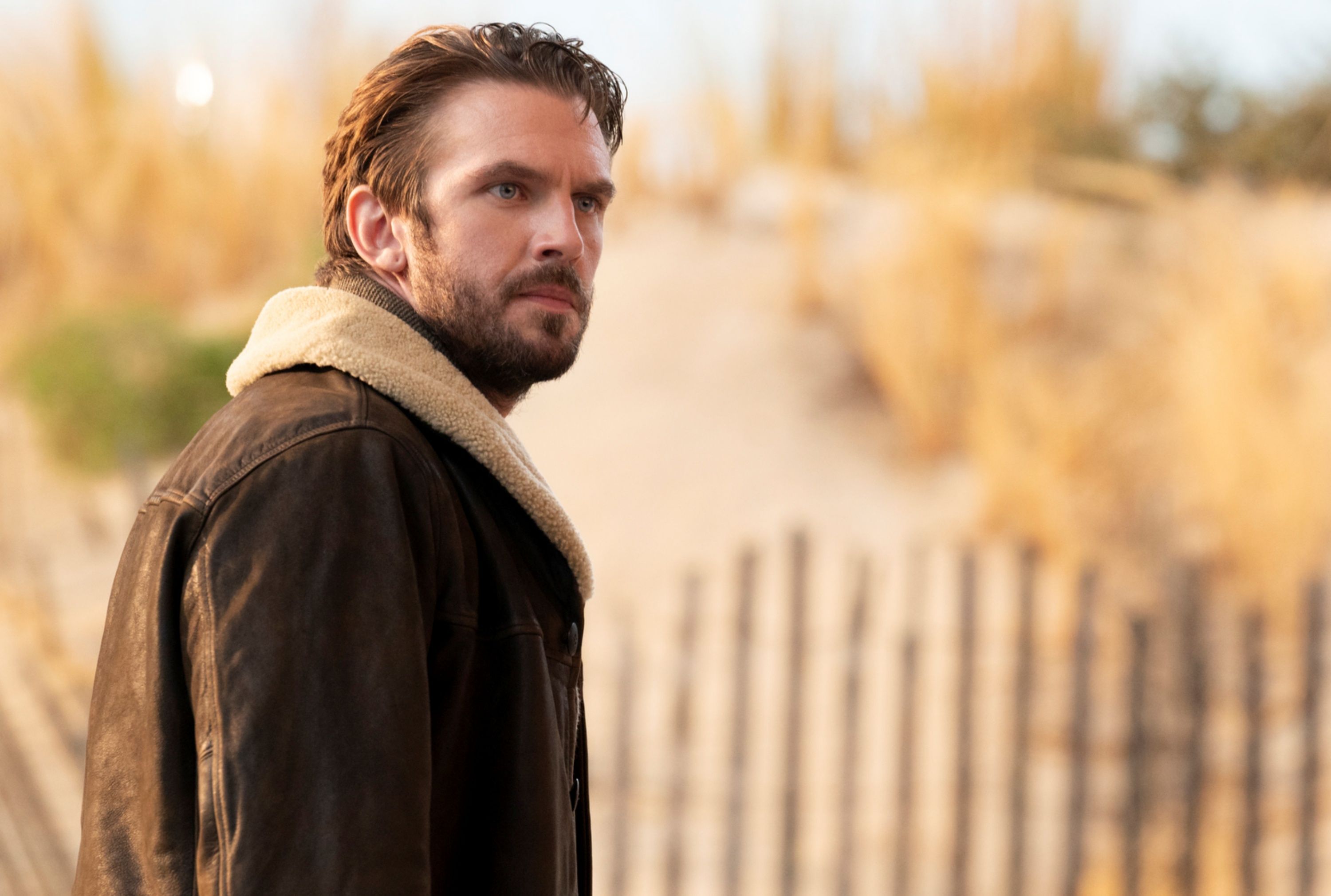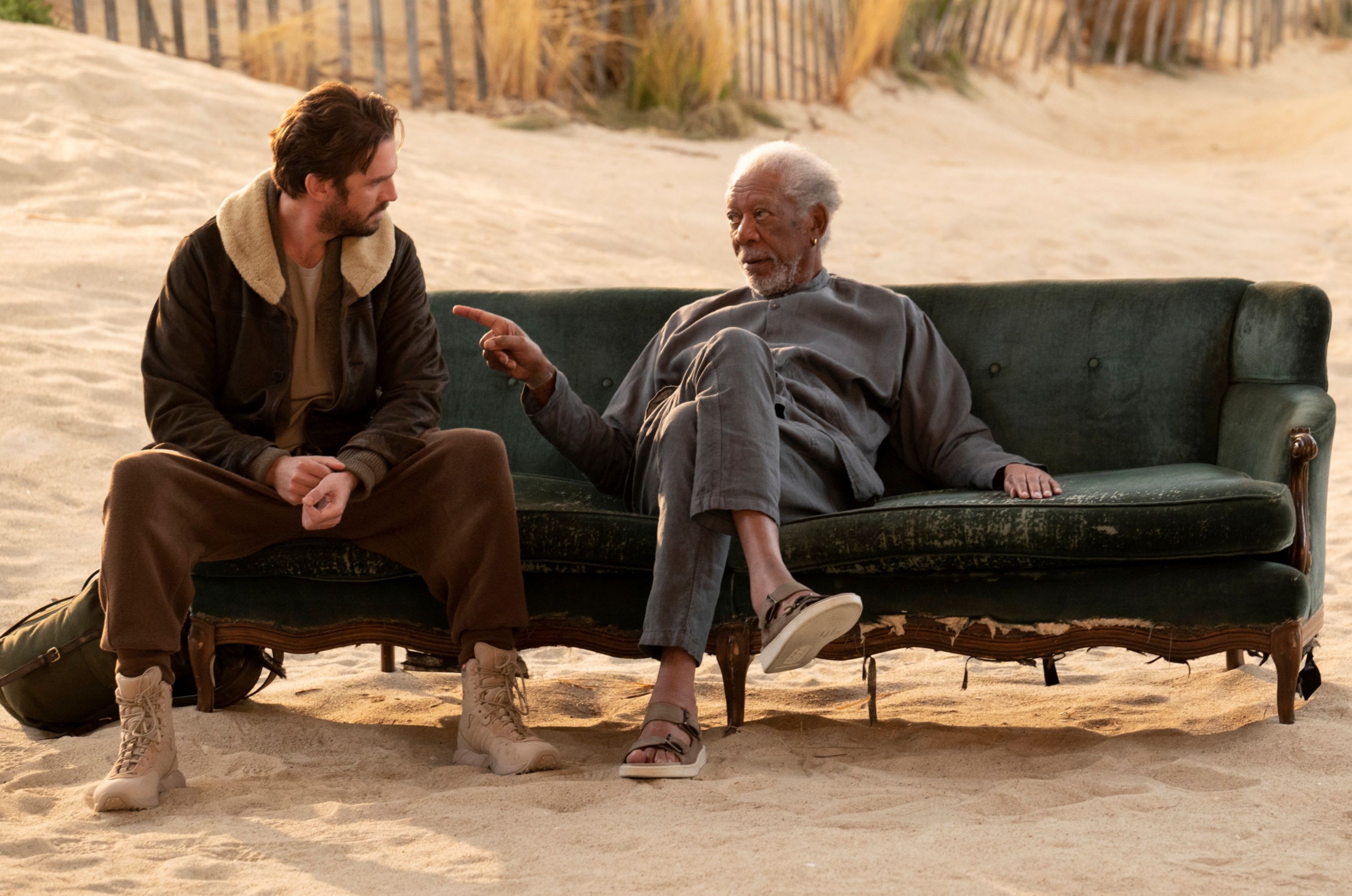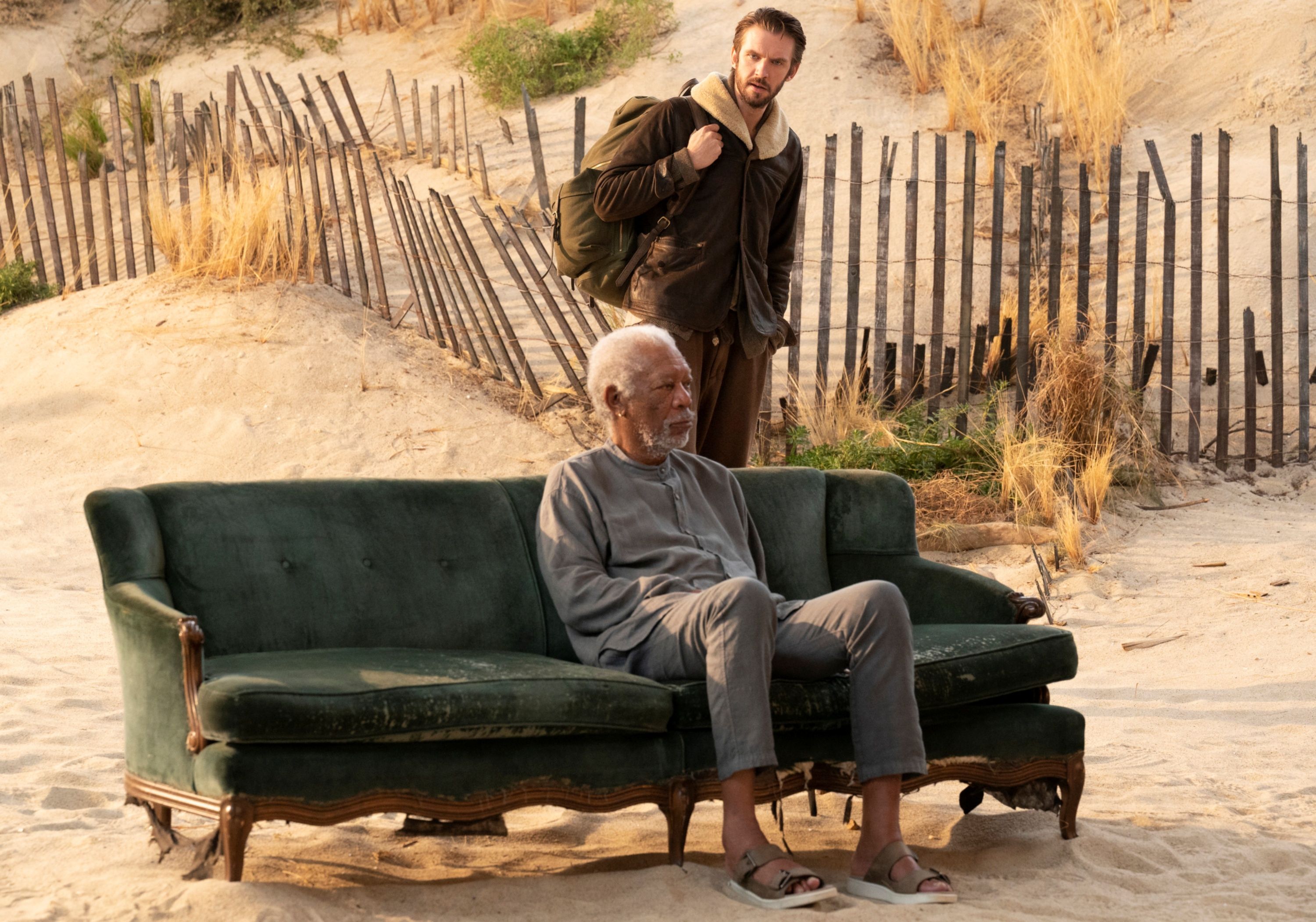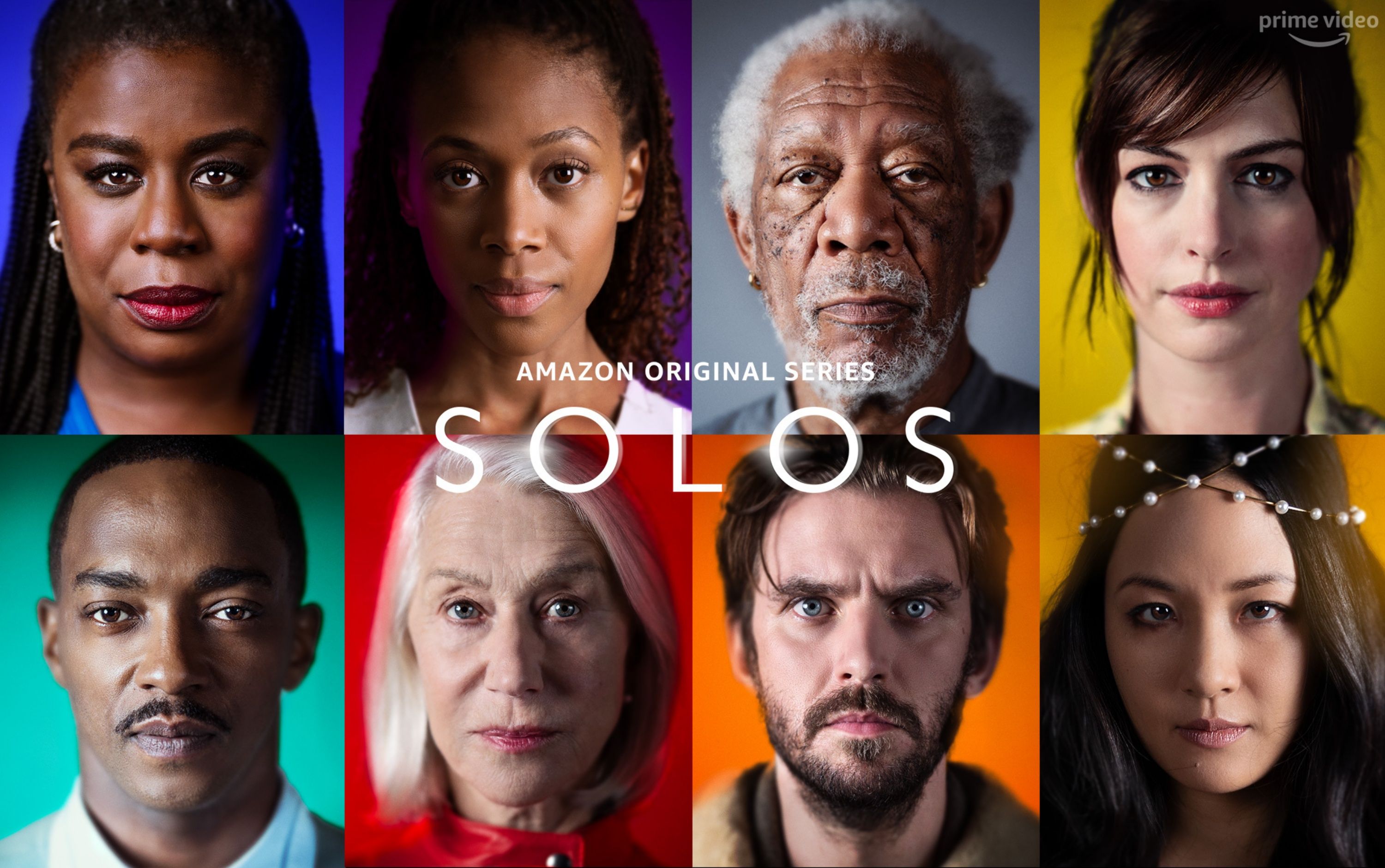From creator David Weil, the seven-part Amazon Prime Video original anthology series Solos is an exploration of what it means to be human and all of the emotions that come with that, spanning across the present and future. Human connection can and does take many forms and often intertwines with technology in different ways, whether through time travel, A.I. bots, smart homes, fertility treatments or memory transplants. The series stars Uzo Aduba, Nicole Beharie, Morgan Freeman, Anne Hathaway, Anthony Mackie, Helen Mirren, Dan Stevens and Constance Wu.
During a virtual junket to discuss the new series, Collider got the opportunity to chat 1-on-1 with actor Dan Stevens about the incredible emotional challenge that this piece of writing presented, exploring the character dynamics with Morgan Freeman, voicing a computer for Helen Mirren, shooting during COVID, and the collaboration he had with episode director Sam Taylor-Johnson. He also talked about taking on John Dean for the Starz drama Gaslit alongside Julia Roberts and Sean Penn, and what he loves about doing voice work in animation.
Collider: When this came your way, how was it presented to you? What was the pitch for the series and did they give you an overall sense of what it would be?
DAN STEVENS: I didn’t really know what the other episodes involved. Although, I was briefly involved in Helen Mirren’s episode as the onboard computer, so I’d seen that one play out and knew something of the style of the writing and the themes that were going on. But I hadn’t seen any of the other episodes and didn’t really know where ours fit in, in the context of the others. It was clearly a great piece of writing with a couple of great roles, Morgan Freeman, and just an incredible emotional challenge.
If you’re going to both get mad and have to hug someone, I feel like you’d want it to be Morgan Freeman. What was that like? How was it to explore that dynamic? Did you guys talk about that at all?
STEVENS: It was a fantastic opportunity to play with somebody who’s just a master of their craft and really knows how to surf the nuances of a piece of writing. It was a wonderful journey to go on, really, and in such a short space of time. It really goes there. All of the episodes I’ve seen have been incredibly moving, but I think that the “Stuart” episode particularly is a very unusual and interesting journey, with these ideas of memory and who owns a memory and what that means to our own identity. So, it’s this slightly wretched character of Otto, who shows up and has clearly had a bit of a rough journey to try and find this character Stuart, who is in possession of this thing that he is so desperately in search of, and it goes from there and takes you to quite surprising places. A lot of it was just getting yourself over to the rhythms and the nuance of the text.
All actors are colleagues with each other and I’m sure there are people that want to work with you, but when you know that you’re going to be working with someone like Morgan Freeman, do you still get nervous?
STEVENS: There was an element of that. It was very surreal. Given that I hadn’t set foot very far from my own home for quite some time, and then suddenly was on a beach hugging Morgan Freeman, it was a pretty surreal journey. The car ride home was like, “Did that really happen?” It was a strange day.
How was the whole production of this? What was this shoot like, with everything going on in the world?
STEVENS: It was amazing that it could happen at all. Kudos to the production that they put it together with these very strict protocols. It was a slightly reduced crew, but everyone was in several layers of PPE. It was not the usual working environment that any of us are used to, but everybody recognized that, if we wanted it to happen, it had to be like this. That, alone, was pretty strange, but also to have the luxury of 36 pages to get to explore with one other actor, and for that other actor to be Morgan Freeman, that was a real luxury. So, there were restrictions and limitations on one hand, but on the other hand, there was tremendous freedom and some great writing to really go to town with.
How long did you actually have to shoot this in?
STEVENS: For the Morgan Freeman episode, I shot for two days.
What was it like to have that experience of getting back on set? What was the first day of filming again, like for you?
STEVENS: A lot of nasal swabs, to begin with. Every day started with a couple of sticks up the nose. There was just a lot of that stuff going on. Really, you were kept at a distance, which is unusual. So much of what we do is about collaboration and togetherness, and just being silly with your cast and crew, and throwing yourself into it together. I suppose maybe appropriately for some of us, we were kept isolated. We were in our trailers until the take started, and then you’d go on set. It was a different way of going about work, for sure. I’m sure those protocols will stick around for a bit, but hopefully, eventually, we’ll get back to how it was.
How did you end up also doing the voice for Helen Mirren’s episode and were you ever able to actually interact with her?
STEVENS: I was live in the studio for that episode. I was in a little booth in the corner of the room, while she was in her space pod. We would chat over the monitor, as it were, as if she was talking to the computer anyway. We maybe met face-to-face a couple of times, at arm’s length and with masks on. I didn’t have a huge amount of interaction with her, but I did get to watch. In order to respond to her, I had a monitor and I was watching her work up close, for those two or three days that I was doing that as well. That was a great privilege, in and of itself, but then a very different experience to go and be in person with Morgan.
Much like getting to hug Morgan Freeman, if you’re going to be a disembodied computer voice for anybody, it seems like Helen Mirren is a good option.
STEVENS: It was pretty fun and just great to watch her get to grips with this writing as well. It was about just giving yourself over to the journey that the writing took you on. It was fantastic.
“Stuart” is an interesting episode because you’re not really playing the past or the future of this guy, you’re just fully living in this moment of his life and exploring his emotions right now. Did it feel very different to do something like that, as an actor?
STEVENS: There was an element where I was thinking a little bit about his journey, but it’s such a momentous thing that he’s doing and it really is a culmination of seemingly a lifelong quest. It’s both in the moment and a huge deal for him and a massive emotional rollercoaster, to find this guy and find what he’s in possession of and to execute his plan that he’s been dreaming of. There’s a lot going on there. It’s very much a moment that’s in the now.
How did you find the experience of working with Sam Taylor-Johnson, as a director and collaborator? Were your conversations mostly with her, or were they also with show creator David Weil?
STEVENS: I suppose they were primarily with Sam. There was a little bit of conversation with David. He’s the writer and producer, but Sam was directing this episode. It was about really encouraging both Morgan and myself to just let the rhythm of the story and the text really speak for itself and, and take us to these places. It is such an extraordinary emotional moment for both of the characters, in a funny way, with what they go through in those 30 minutes. It was all about that, really.
Did you find yourself learning anything about acting or about yourself, as an actor, from doing a project like this that is so different and where it is just you and another person?
STEVENS: I feel like I learn something on almost everything I do, especially when you’re working with someone as great as Morgan. It’s almost like an osmosis or something, where you’re just bathing in this excellence and watching it unfold. I don’t know if there was a specific lesson that I was making notes about. It was something to do with a rhythm and a bearing, and also just a willingness to let the text take you to places and not necessarily to force anything. He has such a natural gift that it’s amazing to watch it.
It was announced recently that you’re going to do Gaslit and play John Dean. Is there simultaneously an incredible feeling of being excited and terrified to take on a role like that, when you’re playing somebody that exists and that’s still very much around?
STEVENS: Yeah, there are challenges to that. What’s interesting with that story, and this is probably true of every role and project, is looking at the person, looking at the man, and looking at the people involved in this situation, and their motivations, and their flaws, and things like that. I’m trying not to think too much about the historical significance of that and just looking at the minutia and the inherent drama of being involved in that whole situation. It’s a fascinating story.
Was that what made you want to take on that project, or was it the fact that you’d be surrounded by people like Julia Roberts and Sean Penn?
STEVENS: That’s got a huge part to play, for sure. There are some great people involved, and Matt Ross is directing it. It’s gonna be very interesting. We start next month (in June).
You did some great work in Kipo and the Age of Wonderbeasts. What did you most enjoy about being a part of that project? Did anything surprise you about doing that kind of voice work?
STEVENS: That was a lot of fun. I love that project. The diversity of it was very attractive. The themes were great. There are some wonderful characters and a very, very silly villain in Scarlemagne. I really got to go to town in the booth with that one. It was a really fun team. My kids really enjoyed it too, which is always a bonus.
Are there more voice acting roles, in your near future? Is that something you want to do more of?
STEVENS: Definitely, yeah. It’s something I’ve been longing to get into, for a long time. It looks like there’s more on the way, which is great.
What was the draw of that kind of voice work for you? Is part of it the fact that you can play characters that you’d never be able to play in live-action?
STEVENS: That’s certainly one of the appeals. I’ve always enjoyed voice work. I’ve done a huge amount of audio books and things over the years, in all sorts of different voices and characters. To apply some of that work to the animated space, and I’ve always adored animated films anyway, it’s getting to dive into something that I already love anyway. So, there are some fun things on the horizon. It’s partly about making people aware that there’s something you really enjoy doing.
Solos is available to stream at Amazon Prime Video.

